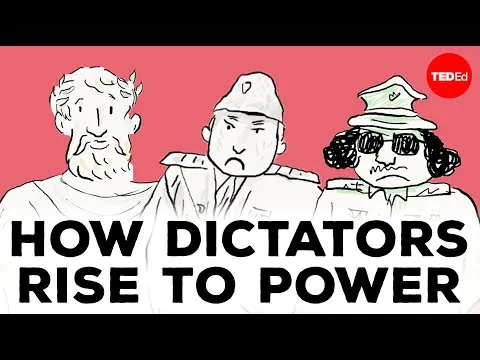There is much discussion, both online and offline, on the different leadership styles.
More or less, there is a tendency to agree on a number of specific leadership styles, such as democratic, authoritative, and transactional, to name a few.
What about dictatorial rule, however?
Does “dictatorial leadership” fall within the limits of the definitions of the various, most common leadership styles?
Democratic leadership vs. dictatorship
These are perhaps the two extremes of the spectrum of leadership styles, provided, of course, that dictatorship itself is accepted as a leadership style.
In general, it wouldn’t be far from the truth to say that both democratic leaders and those led by them have a highly negative opinion of dictatorship.
Actually, supporters of democratic leadership reject and oppose any type of dictatorial rule.
I believe that the opposite also applies, i.e. advocates of dictatorship do not have the best opinion of democratic leadership, and they are in constant conflict with its supporters.
Autocracy vs. dictatorship
When it comes to comparing autocracy with dictatorship, it could be argued that the latter is associated more with military power, in its most extreme expression.
Military power is how a dictatorship is imposed, and it is the ultimate way that is used to enforce the will of a dictator on people.
Although military power can also be used by an autocrat, it may not be the primary means of imposing their will on their subordinates.
Even in non-military contexts, a dictatorship is a forceful disruption of the status quo, and the enforcement of the will of just one or a few persons on others, whereas autocracy may not have such a violent face, as it may seek stability and perpetuation of the status quo.
A dictator in the workplace, in the family, etc.
A dictator is a person who forcefully imposes himself on others, in order to become their leader and have them do whatever he or she wants.
But, is such a person a true leader?
Chances are that you have come across a dictator in your personal or work life at some point.
He or she differs from an autocrat in that the latter may not be as oppressive, possessive, and an actual control freak, as a dictator is.
A dictator is not a true leader
Based on the assumption that a leader should first and foremost be accepted by his or her followers, through the latter’s free will, rather than oppress them and forcefully impose himself or herself on them, a dictator cannot, and should not, be described as a leader.
Although there can be times that enforcement and coercion may be required, even in a democratic society, in order to enforce the will of the many over the few, this type of action is considered legitimate and within the context of democratic action.
Even in such a case, the real influence, ability, and acceptance of a democratic leader who only uses coercive measures is questionable.
More so in the case of a dictator who aspires to be called a leader, and this is due to the fact that he or she will never enjoy the voluntary acceptance and support of any followers.
Therefore, since a dictator is not a true leader, dictatorship cannot be included among leadership styles.
Sources and further reading:
Exploring Leadership Styles: Which One Resonates With You?
Autocracy Versus Dictatorship: Similarities & Differences
Dictator vs. Leader
